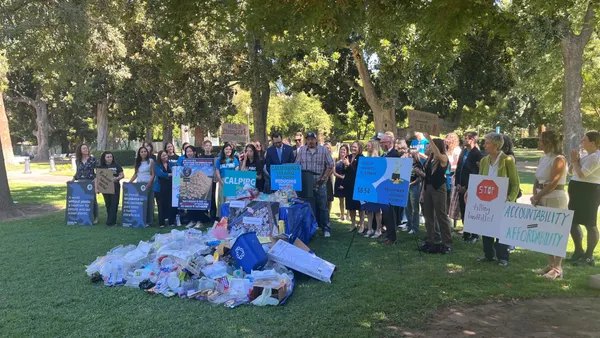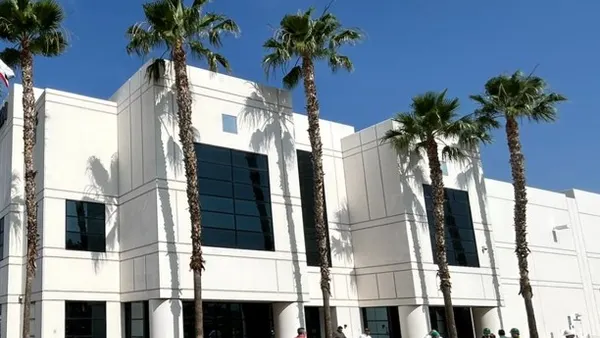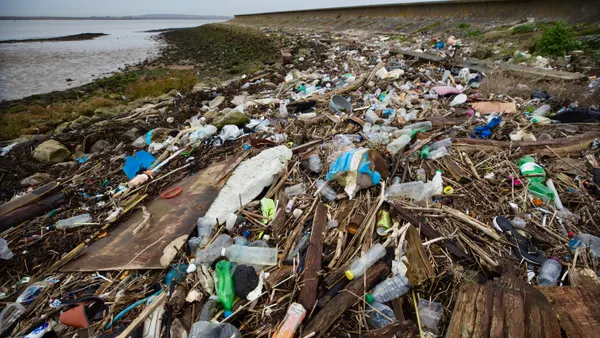Dive Brief:
- The Massachusetts Department of Environmental Protection (DEP) has awarded $187,500 in grant funding to six municipalities — Dartmouth, Lowell, Lynn, New Bedford, Halifax and Chatham — to improve the quality of their recycling streams through the Recycling IQ Kit program.
- The kit is designed to provide guidance on engaging with service providers and material recovery facility operators, messaging instructions, tracking and reporting tools, customizable artwork and resources for resident feedback. IQ Kit material is available for free online. Funding is meant to help with additional staffing for engagement or cart inspections, as well as printing or other messaging costs.
- Applications are currently being accepted through April 30, with grants awarded on a rolling basis. The DEP told Waste Dive that $500,000 has been budgeted for funding during the first half of 2018, and "there may be more funds available depending on the level of interest."
Dive Insight:
The Recycling IQ kit originated with a meeting between the DEP's branch chief for municipal waste reduction and The Recycling Partnership's CEO at a Northeast Recycling Council conference more than three years ago. Following that introduction, the national nonprofit applied for a state grant in 2015 and began working with the agency on pilot testing in 2016.
This initial work in a few municipalities focused on what type of messaging — mailers, magnets, cart tags — was most effective to communicate with residents. That multi-month effort resulted in notable contamination rate reductions, especially for target items such as plastic bags, and led to further pilots in six municipalities last year. The DEP used this second round as a way to fine-tune materials and identify the appropriate levels of technical assistance it would need to give local recycling coordinators in the process.
The finished product was released in January, just as it became public that the effects of China's scrap import ban and other local MRF factors had led to dozens of disposal waivers in Massachusetts. Local recyclers have since seen some improvements, but are now faced with the separate challenge of a key glass market disappearing, which in turn has led to additional waivers.
While the IQ Kit isn't designed to address the glass issue, the hope is it can improve single-stream quality for all involved. Some of the same municipalities that participated in last year's pilot are among the grant recipients, in a sign that they've been seeing results and want to continue their progress.
The Recycling Partnership has continued to hone its approach in multiple cities around the country, and contamination is now receiving much more attention than it once did. The Environmental Protection Agency has expressed interest in developing a national contamination rate, Waste Management has declared a "battle" against it, Florida state legislators just passed a new bill on the topic and many other local governments are ramping up their educational efforts.
DEP's early work in this space could serve as a model for other states, depending on the availability of funds, to counteract the side effects of sticking with a single-stream system in this new post-China market situation.










